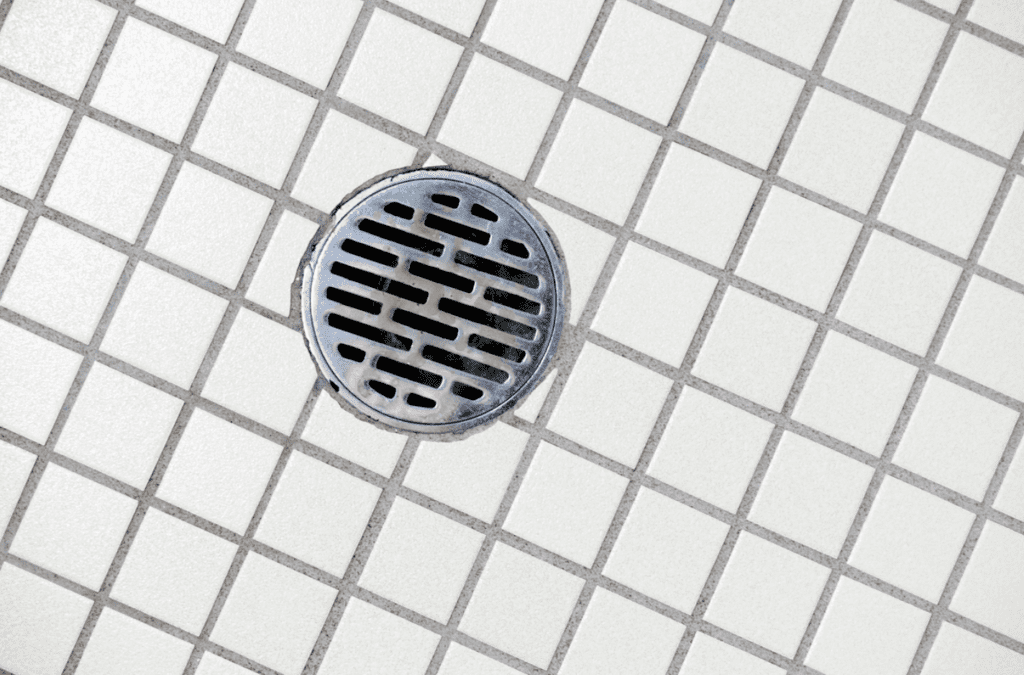
If “fix slow shower drain” is on your to-do list, check it off today with materials you might already have in your home. For example, if your shower water is puddling at your feet, you want to resolve it quickly.
A clean drain is essential for a healthy plumbing system. A prolonged clog can cause you home and health issues, so don’t wait to take care of it! Luckily, whether or not you’re familiar with taking care of your plumbing, this is something you can prevent and fix. If your shower is draining slowly, look at some of these at-home solutions before calling a professional.
How to Prevent a Slow Shower Drain
Long hair may run in your family, but it also can run in your drains. Your shower clog could also be caused by product build-ups–such as body butter or deep conditioner–or debris, like dirt and sand. A combination of these things can cause a clog inside your pipes.
Invest in an inexpensive rubber or plastic drain trap to catch hair and other debris before it slips down the drain. Using products in moderation or switching to thinner products can help the walls of your pipes stay clean. Thick and heavy products–particularly ones with oil or greasy ingredients–can accumulate on pipe walls and increase the likelihood of a clog.
If you have pets, start their baths outdoors if they’ve had a messy day. Wash the debris off before entering your drains. Hard water can also stick to your pipes and form clogs. If this is the case, invest in a water softening system to remove particles before they build up.
Baking Soda and Vinegar
This solution is a natural classic. It is affordable and won’t damage your pipes like store-bought chemical alternatives.
- Pour a ½ cup of baking soda down your drain
- Pour a ½ cup of vinegar after the baking soda
- Plug the drain and let it sit for one hour
- Pour a pot of boiling water down the drain
- Repeat these steps if the clog persists
Baking Soda and Salt
Suppose you don’t have vinegar, baking soda, and salt work similarly. In a bowl, combine a ½ cup of baking soda with a ½ cup of salt. Pour this mixture down the drain, and let it for at least 30 minutes and as long as overnight. Lastly, pour boiling water down the drain and repeat this if necessary. Make sure to pour the water down the drain within a day, as leaving it for too long can be problematic for your pipes.
Chemical Drain Cleaners
Chemical drain cleaners are a popular option that people turn to when they unclog their drains. Chemical drain cleaners are convenient but can damage your pipes and the environment. Using natural materials is better for your health, pipes, and the environment for a temporary solution.
These cleaners work by decomposing organic matter, such as grease and hair. Chemical drain cleaners are heavier than water, letting them pass through standing water down the drain.
Choose the Right Type of Cleaner
There are several different types of cleaners. Choose an acidic or caustic cleaner if you decide to use a chemical solution for your shower. Acidic cleaners–as you might infer–use acid to break down clogs and are primarily used for hair. Caustic cleaners have a higher pH and are similarly well-suited for hair and grease clogs.
Oxidizing cleaners are less harsh than these two. They break down debris with bleach, peroxide, and nitrides, which take longer to unclog. Therefore, oxidizing cleaners are better for softer materials that break down more easily, like food.
Wear Protection
Use gloves, masks, and protective eye gear when handling chemical drain cleaners. They can produce harmful fumes that can burn your skin, eyes, and the inner lining of your respiratory system. Beware of health risks to avoid severe burns.
Use Cleaners Cautiously
Ultimately, using a chemical solution is up to you. If you choose to use it, try to limit how often you use it. Even if your pipes are made of solid materials, the more you use the chemical cleaners, the more they will eat away at your pipes until there’s irreparable damage.
Why Fixing a Slow Shower Drain is Important
Keeping your pipes clean is essential. Not only do clean pipes decrease the likelihood of a clog, but they also prevent collateral issues.
If left unattended, clogs can cause leaks. Keeping the water in your pipes free-flowing will make leaks less likely. Additionally, unattended clogs can attract drain flies. Drain flies are small flies attracted to organic material that can sit in drain clogs. They can also crawl through the drain and infest a bathroom. Keeping a drain clean will ensure that drain flies are less likely to inhabit your drains and bathroom.
A prolonged slow shower drain can cause rotting material. In addition, the contamination can cause health problems for those who live in the home. Prevent these issues and restore your showering experience by taking good care of your drains.
If All Else Fails, Call Goodbee Plumbing
Call a professional today if you find that your clogs are emitting odors and recurring. Some clogs in your home may be beyond an at-home solution. DIY projects can do more damage than good if your issues involve internal pipes. A video inspection is a non-invasive procedure that may help you pinpoint difficult blockages. Enlist a skilled hand to minimize risks!
Are you finding yourself in a hairy situation? Our team of experts can provide day-of service so that you can return to having the clogless drains you deserve.
